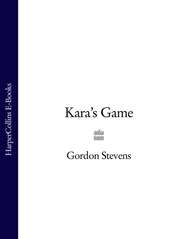По всем вопросам обращайтесь на: info@litportal.ru
(©) 2003-2024.
✖
Provo
Автор
Год написания книги
2018
Настройки чтения
Размер шрифта
Высота строк
Поля
Relatively speaking – everything in Northern Ireland was relative – the area was secure, not plagued by the violence suffered by the communities in and around the city centre. Most of her neighbours were young and professional class. Despite this she maintained a strict personal security. Each time she drove into the street she checked for the obvious signs of surveillance; each morning, when she went to the garage at the rear of the house where she had a first-floor flat, she checked the car for bombs before she started it, even though she had fitted the garage with special locks and an electronic door. Even when she went out to dinner in what was considered a secure area, with friends or colleagues, she timed the interval between ordering a meal and its being served in case someone on the staff was a Provo or UFF informant and had recognized her, had delayed the meal while a hitman was summoned.
Her cover story matched what appeared to be her life-style. She had lived in England for eight years, married, but was now divorced and living off the settlement paid by her former husband while she looked for a job. In case either side – PIRA, the UDA or the various organizations springing from them – had sources in the estate agent’s office from which she had rented the flat, every month a cheque was paid into a bank account she had established. And in case the same organizations had a source in the bank, the money was paid from another account set up in England by a man alleged to be her former husband. In the flat itself, in case she was burgled, she kept solicitors’ letters referring to the case, as well as the divorce papers themselves.
She hung up her coat, placed the Browning in the bedroom, and went to the kitchen. It was a strange life, she would have admitted; most people would not understand it. But in the end you were who you were. Even at the beginning . . .
. . . she was nine, almost ten; long legs and awkward body. It was spring, going on summer, the children playing at the foot of the hill above the town. The game was hide and seek, the children divided into teams. She was on the catcher team, hunting through the trees and undergrowth for those hiding from them. The wood was quiet. She paused, not moving, not even shifting balance, totally alert, listening for the slightest rustle which would tell her where her quarry was hiding.
The teams changed, the hunters becoming the hunted. Some of the children hid in pairs, but she was different, preferred to be alone, to take her chance alone.
The tree was covered with foliage. There was barely enough time to pull herself up and conceal herself before she saw the searchers below. The blood thudded through her head and she did not dare breathe. She knew the boys were looking for her, knew they knew she was close by them, looking at them. For five minutes she looked down on them, willed them not to look up, willed them to look for her somewhere else.
They moved off and she knew she had won, tasted the triumph and waited for them to come back, waited for the excitement of the moment again. The thudding eased and she was aware of the other sensation, though she would not have been able to express it, perhaps not even to identify it. Not just the emptiness of suddenly being out of the game. Something else. The emptiness of no longer being on the edge, no longer being in danger …
The following day she checked the reports for fresh information on Clarke and Milligan. The two were still on the move, one in Belfast and one in Londonderry. Plus a third gunman – Black, Alex – the intelligence on Black’s movements from an SAS observation post.
Hanrahan reached the pick-up point thirty seconds early. The evening was dark and it was drizzling slightly. He waited, hunched against the weather, then the car stopped, the back door opened, he stepped in and the car pulled away. The men in the front seat were in their late teens, he guessed, certainly not in their twenties. The way they had all begun, what he himself had been like so many lifetimes ago.
‘Which side?’
‘Left.’
Hanrahan’s mac was wet; he took it off and placed it on the seat. The man in the front passenger seat turned and handed him the gloves. Hanrahan pulled them on then took the Kalashnikov. The others were jumpy, he sensed, almost too keen, would go ahead with the job even if the Prods were waiting for them. It was already two minutes to seven. The car turned into Tennent Street. He checked the gun and wound down the window. The takeaway was fifty yards away.
‘There he is.’
The driver pulled in to the pavement. Slightly too fast, Hanrahan thought, might have given the target some warning. He pressed the trigger and the car screeched away.
Farringdon was informed at eight the following morning; at 8.30 he included the information in his first meeting of the day with Cutler. Cutler had been Dol, Director of Intelligence, Northern Ireland – the most senior MI5 position in Belfast – for the past three years; for the past eighteen months Farringdon had been his deputy.
The previous evening a man with links to the UFF had been gunned down in the Shankill, responsibility being claimed by the Provisional IRA. Cutler’s briefing was to the point. The normal sort of job – the shrug said it – except that the driver of the vehicle used for the killing hadn’t dumped it quickly enough. An RUC undercover car had spotted the vehicle, recorded as having been stolen earlier, and had arrested the driver for taking and driving away. At first it was thought that he had stolen the vehicle for a joy-ride; only later had it been tied in with the shooting. The driver’s name was Flynn. During his interrogation he had admitted involvement in the shooting, but had denied knowing the identities of the others. Under pressure, however, he had given a description of the hitman which matched that of a Frank Hanrahan, a known Provisional IRA gunman with a prison record. Because of the possibility of Flynn being turned and acting as an informant, RUC Special Branch had been informed and had taken over the case, and had in its turn informed MI5.
‘When are they picking up Hanrahan?’
‘Now.’
‘Any possibility of turning him?’
‘Probably not.’
‘Who are you assigning to the case?’
‘Nolan.’
Nolan was relatively new, but she had come to him with a background unsurpassed by many of her more senior colleagues.
‘Fine. Keep me informed.’
The interview room at Castlereagh was bleak and featureless, the desk and chairs of grey metal. Nolan sat patiently and watched the interrogation. Hanrahan against Brady – who had been with her in the forward surveillance car in Beechwood Street – and a Special Branch inspector named McKiver.
We all know why we’re here, Frank. So what were you doing on the evening in question? How can you account for your movements? What were you doing between five in the afternoon and ten that evening – the hours were deliberately vague and loose, an attempt to draw Hanrahan in, make him admit something, anything, that they could check out. What clothes were you wearing, Frank? Same clothes that forensic are looking at now? You know about forensics, of course, what they’ll be looking for? Fibre matches between your clothes and the car, traces of lead on your coat where you fired the gun.
Hanrahan was looking at his interrogators, absorbing their questions but saying nothing, not even acknowledging their presence.
They would get nowhere, Nolan knew: Hanrahan had done his time before and would do his time again. Not the breathtaking cold of the nights during the Blanket Protest, when the IRA prisoners had refused to wear uniforms; not the cells smothered with human excrement as they had been during the Dirty Protest which followed. Fifteen years, even twenty, cut by half in line with official policy, but a long time anyway.
Be careful with the questions, the interrogators knew. When Hanrahan was sent to Crumlin Road he would be debriefed by the IRA security section within the prison. Then the Provos’ intelligence people would try to establish what the Brits or the RUC already knew from the questions his interrogators had asked him.
You won’t make it this time, Frank. The two SB men were facing him, the use of his first name sometimes friendly, more often threatening and hostile. You remember what it was like when you were young, Frank, just imagine what it’ll be like this time. So why do it, Frank, you hadn’t done a job for a long time, why now?
Clarke, Milligan and Black still on the move – Nolan had checked that morning. Plus two more overnight – Lynch and Hoolihan.
Hanrahan’s face was as grey and expressionless as the walls of the cell, eyes staring straight ahead, the thin scar which Flynn had described and which had pointed them to Hanrahan down the corner of his left eye. Somebody grassed, she read it in his face, somebody turned stag and when they find out who the boys will take him for his cup of tea.
The first day of the interview ended and Hanrahan was returned to the cell.
The overnight reports on the Provisional gunmen came through an hour before the interrogation of Hanrahan resumed the following morning. The five gunmen still on the move, now joined by a sixth – Lynan. Foot soldiers, Nolan knew, expendables like Hanrahan.
The interview recommenced at eight. Overnight they had assessed the possibility of Hanrahan cracking, had also looked at the possibility of Hanrahan turning, of Hanrahan becoming a CT – converted terrorist. Had gone through the files for the single piece of intelligence which might provide the key – gambling debts or affairs with other women were favourites; once it had been found that a Provo shooter had been having an affair with the wife of an RUC man.
You know the results of the forensics, Frank. You know we can put you in the car and that we have witnesses to say that that was the car used for the murder on Tennent Street. You know that we can prove that you fired a gun that evening. So be fair on yourself, Frank, have a think about it.
Hanrahan still had not said a word. Would not say a word, the interrogators knew. At eight that evening they finished the second day. The following morning they would formally charge him and the following afternoon, unless he said something worth listening to – unless he said anything at all – they would give up on him as they had known they would from the beginning, and Hanrahan would be detained at Crumlin Road jail. And two months after he would appear before a single judge sitting in a so-called Diplock Court – no jury because of the threat of intimidation – and be sent down for the required period.
That evening they scanned the Hanrahan file for what Nolan assumed would be the last time, that evening she returned to the flat in Malone Park and thought about the man who had still said nothing, about the details on his file. At six the following morning – two hours before Hanrahan’s last interview was due to begin – she returned to Lisburn; at seven she made the request, at 7.45 she ran through the updates on the Provo gunmen still on the move in the North.
Clarke and Milligan. Black and Lynch. Hoolihan and Lynan. Plus a seventh.
McGuire. Not seen for four days.
She knew who and what he was but checked on the computer anyway.
McGuire, Kevin. Born 11.4.59. Married, two children. The details flickered on to the screen. Not a bomber or gunman, one of the men who ran the bombers and the gunmen. What the intelligence services would call an LO, a liaison officer.
She ran the reports together, logged a synopsis, and requested immediate reports on McGuire once he was sighted. Logical, she thought. The troops on the move and the handler out of sight. Almost too logical.
She left the office and went to the interrogation centre at Castlereagh. Brady and McKiver were eating breakfast in the canteen; she collected a coffee and joined them.
‘No problems about me asking a couple of questions today?’
McKiver was the problem, she and Brady had agreed: McKiver didn’t even think MI5 should have been informed. The last day, they understood, therefore nothing would happen. Therefore she could join in.
‘Fine.’
They went to the interrogation room, McKiver and Brady taking their usual positions along one side of the desk, the prisoner opposite them.
The forensics, Frank. Confirmation that the car was the murder vehicle and that you were in it. Ballistics suggest that the weapon has also been used in three other killings. The chances of them being put down to you, Frank. Might not carry in court, of course, but could affect the sentence.
Hanrahan sat impassive and said nothing, not even a flicker in the eyes. No response when they offered him coffee or a cigarette. At 10.30 they broke for five minutes. And when they returned Hanrahan would sit in the same position and not move until they led him out after charging him. There was a feeling of inevitability about the way they left the room, the knowledge that they had been through it before.









